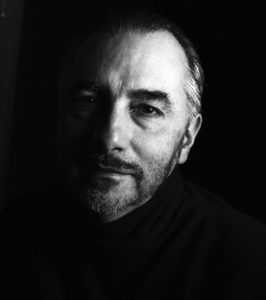“Reflections of a Living Art”: Pascal Jacob’s 300-volume Biblioteca Circense is for Sale

You may know him as the Artistic Director of the Festival Mondial du Cirque de Demain and Cirque Phénix, but Pascal Jacob is also quite the connaiseur of circus books. Now he is looking for a new owner for his invaluable book collection.

A lifelong circus fanboy turned creative veteran, Pascal Jacobs has traveled a long path through the performing arts world. The course of his career has brought him from designing to directing, from the stages of French opera to Spanish ballet; from Ringling Brothers and Barnum and Bailey to Dragone Entertainment Group to Cirque Phénix, and from scouting talents in Wuhan, China, to bringing in acts from around the globe to the Cirque du Demain festival. He’s also worked with major institutes in Europe and America to curate exhibits and published over 40 books along the way! And, at every step, he’s also been building out a Biblioteca Circense.
This library comprises hundreds of books on nearly every circus topic imaginable, from circus history and culture to the nitty-gritties of the art and all its disciplines. Most of these books are in French, but there are also numerous volumes in English, German, Italian, and other languages. As well, some circus programs—including quite a set from the Cirque de Demain Festival—serve as the cherry on top of Pascal’s collection.
As it turns out, Pascal’s history as an informal librarian spans nearly as long as his circus career itself. “I started to collect books in 1976, creating relationships and complicity with Parisian booksellers,” he explains. “There were four of them, totally dedicated to the performing arts! So , I built my first library and transferred it to Montreal in 2003, constituting the base of the ENC Bibliothèque. At this time, my library was installed in Hors les Murs’ office and opened to students and researchers. Since this one was on the shelves in Montreal, I started to build a new one. I have regularly had opportunities to find some pre-built ensembles of books, and because I really can’t resist getting them, my collection has a lot of possibilities!
“But I am ready to sell this Biblioteca Circense because I think it’s a good time to do it, considering its really interesting profile of diversity, something which I have been curating for the last few years.”
Collecting books has been more than just a hobby for Pascal; it is, in some ways, a deliberate extension of his career and passions, his roles as both an educator and curator of circus knowledge. In a statement to CircusTalk, he describes, “- I truly believe I am a kind of passeur; I try to follow the path opened by some great books collectors, such as Pierre Féret. His circus collection is now curated by the Université de la Sorbonne nouvelle-Paris III at their Bibliothèque de l’Institut d’Etudes Théâtrales. I contributed to its cataloguing alongside Jean Villiers, the man who taught me everything about circus prints, papers, books…. Collectors such as Paul Fratellini, a real bibliophile— a man who was collecting books from everywhere, looking for modest as well as prestigious ones, and creating a beautiful library which is today partly preserved at the Academy Fratellini; or Jean Villiers himself, who had a wonderful library, with many American circus books that I spent hours reading in his corridor, waiting for the day I would be able to buy some…. which I finally did in 1982, on the occasion of my first trip to the United States, from a bookstore in Los Angeles!
“I built this library on purpose to create a coherent ensemble of books which could become the base of one that’s more important. New circus books are published almost every day somewhere in the world, which says how much that book collecting is a never-ending process! The product of this sale will help me in the process of developing my collection further in order to make it more and more visible for everybody.”
I had a chance to briefly chat further with Pascal about his philosophy as a collector— and the salient details of his circus library. What he has to share illuminates not only the fun and the value of literature, but also the real “spirit of circus books”: how books can be the building blocks to understanding for learners and teachers alike.
Carolyn Klein: What does it mean to create a circus library today ?
Pascal Jacob: In the age of the Internet and uncountable online knowledge, writing, publishing, reading, or owning books may seem paradoxical. But holding a book in your hands and appreciating its weight, discovering its illustrations; reading a few pages, closing it, and returning to it lateral storing it with others according to its subject, size or color; are moments as peaceful as they are exciting to live!
I have always liked books. All books. Since its beginnings, circus has inspired countless authors, illustrators, and photographers, and their works could be considered a tribute to their creativity. A book is also an object. And the pleasure of turning its pages is unspeakable. The cover choice, the paper thickness, the quality of the images, the graphic composition, are references for the amateur when it is necessary to choose a book. Or more than one!
Creating a library is also a source of pleasure. It’s a bit like embarking on a prodigious adventure—-something that oscillates between Alice in Wonderland and the Lord of the Rings quest. Building one’s library sometimes means having to make choices, by being selective or constrained, in order to, over time… manage to stop making choices!
A library, like a collection of posters, photographs or prints, is an archipelago. And a good part of the pleasure lies in organizing this archipelago according to your subjects of interest. Books of photographs, for example: there are many— some very beautiful, others a little less so. There are some that are true works of art; others that are primarily catalogues. But both these kinds, they are also, and above all, magnificent reflections of a living art.
CK: What makes sharing this very special “spirit of circus books” so important to you?
PJ: I really like creating libraries! Assembling a few hundred titles according to a precise orientation, generalist or specialized, is both a game and a pleasure. I am not a “real” bookseller, but rather, an amateur of the charms and meaning that books can contain— and as “union is strength,” I like to create sets of them to give them even more power!
CK: What was your vision for building this library, and what kinds of books can we find on its shelves?
PJ: I created thisBiblioteca Circense by combining reference books and illustrated texts to make it a solid starting point for a private library or to help develop a resource centre. Some titles are very well known, others much less so. It includes, of course, the great classics of the genre. There are, in particular,La Merveilleuse Histoire du Cirque by Henry Thétard, published in 1947, in its original two-volume version;Les Clowns by Tristan Rémy, the reference work on clowning published in 1945; and the remarkable little book by Roland Auguet,Histoire et Légende du cirque, published in 1974, which remains for me a model of the genre. There are, to define this Biblioteca Circense, there are a multitude of recent works, and many old books—rare books, sometimes precious ones, like a beautiful 1881 version of Heinrich Lang’sKunstreiter und Gaukler. Some are modest books and others very prestigious titles—ones such as theHistoire des Spectacles in three volumes. Some are limited edition books from very small batch printings, and others large popular publications. But always, all of them are linked to each other, weaving in the threads of a story that’s still being written!

Circus schools, museum curators, theater historians, and vicarious readers—want to get your hands on Pascal’s collection? With over 300 books in French, English, and more languages already lining its hallowed shelves, the Biblioteca Circense is now ready to join the bookcases of a new owner! A wide spectrum of circus texts can be yours for 10, 000€. If you are interested, please send your inquiry to the editor.
No matter what their subject or discipline, books let us tell—and retell—the stories of our past and help us set our course for the future. Make yourself a key voice in the continually unfolding tale of modern circus.
.
Editor's Note: At StageLync, an international platform for the performing arts, we celebrate the diversity of our writers' backgrounds. We recognize and support their choice to use either American or British English in their articles, respecting their individual preferences and origins. This policy allows us to embrace a wide range of linguistic expressions, enriching our content and reflecting the global nature of our community.
🎧 Join us on the StageLync Podcast for inspiring stories from the world of performing arts! Tune in to hear from the creative minds who bring magic to life, both onstage and behind the scenes. 🎙️ 👉 Listen now!
